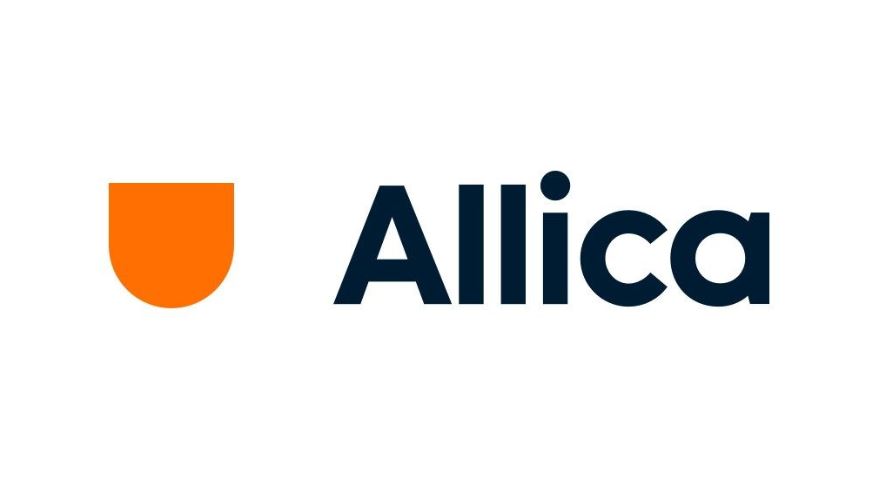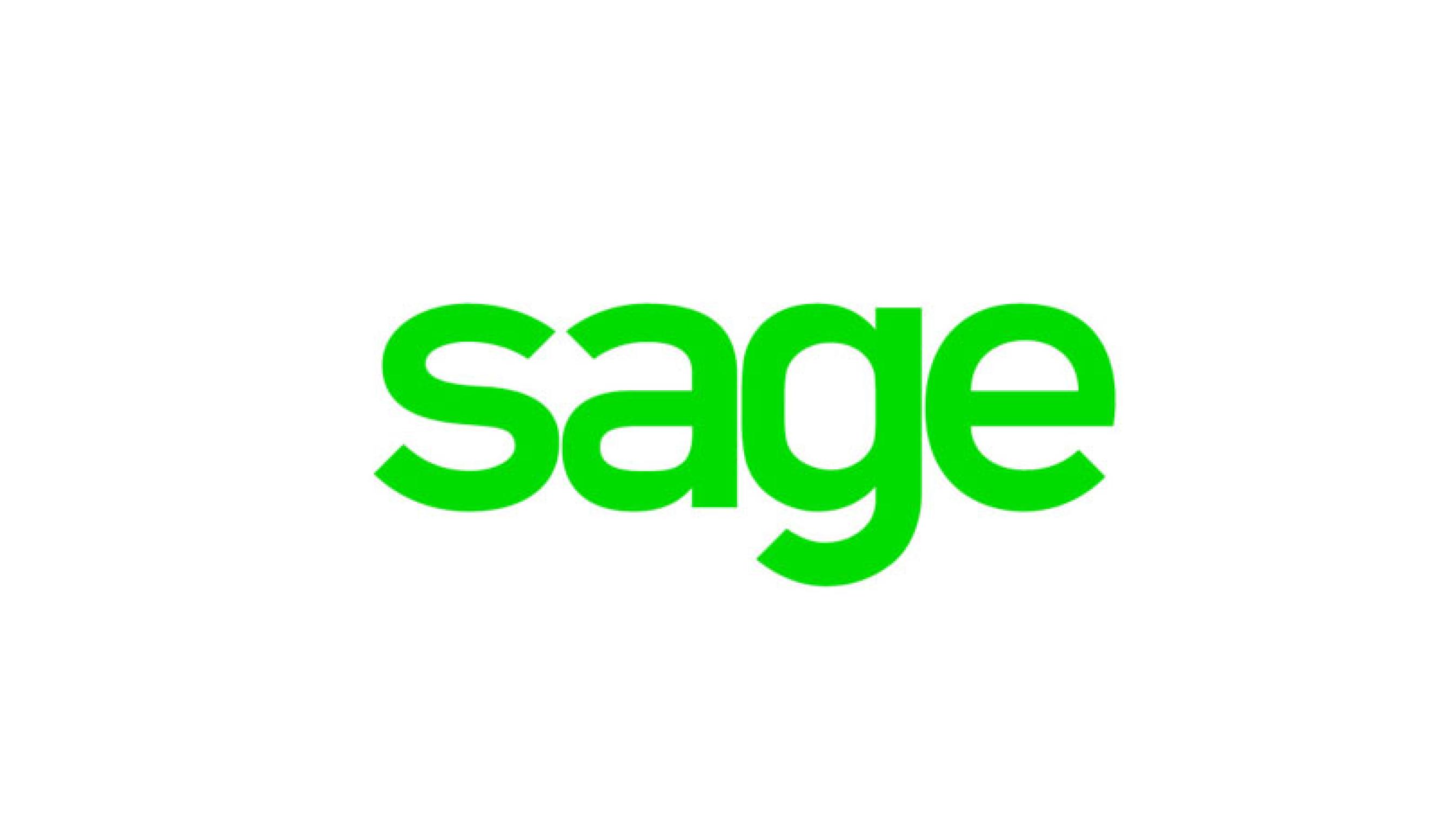Published
- 02:00 am

Colt Technology Services has extended ‘on demand’ capability to its premium business internet offering in Singapore, becoming the only provider in Singapore and the region to provide customers with IP Access On Demand via its SDN-enabled On Demand platform.
As a ‘pay as you use’ commercial model, enterprises can benefit from high bandwidth and agile internet connectivity, provisioned quickly without signing up for any long term contracts. Enterprises now take full control over their internet connections, flexing bandwidth up and down in near-real-time with a feature-rich self-service portal removing complicated service delivery processes and lead-times. For existing Colt On Demand customers, there is no need to add another port. The same physical port enabling On Demand Ethernet and On Demand Cloud connections can be used for IP Access On Demand – enabling seamless and efficient connectivity.
This new IP Access on Demand service is backed by Colt’s wholly-owned and managed metro area network in Singapore, part of the global Colt IQ Network, which connects to more than 900 data centres and 29,000 on-net buildings globally. Since its launch in 2017, Colt’s metro area network covers over 90% of Singapore and 95% of the Central Business District. With Colt being the only non-native carrier in Singapore that fully-owns its network, as well as fibre metro networks in key Asian cities (including Hong Kong, Tokyo and Osaka), the U.S. and major European cities, Colt is perfectly positioned to offer Singapore-based enterprises seamless connectivity solutions. Colt has branches and offices located around the world and provides a unique proposition to the local market.
Today’s business environment requires flexibility more than ever, and enterprises need connectivity solutions that can react to business challenges in real-time for them to continue to be successful. Colt’s On Demand offering has grown from strength-to-strength, with the current expansion in Asia enabling connectivity across business hubs around the globe.
Warren Aw, Regional Director in Singapore, says: “The launch of Internet Access On Demand in Singapore will give a big boost to our business. Colt is in a unique position as we are the only On-Demand internet access Service Provider in Singapore. We can support organisations should they require our market-leading portfolio when moving into the region. We are also well placed to support local organisations and existing customers in their drive for more efficient, innovative services as they continue their digital transformation journeys.”
“Even though we are living in unprecedented times, we need to make sure organisations can remain connected and continue to drive their businesses forward. What differentiates Colt from other providers is our ever-growing global footprint, connecting 52 metropolitan area networks, 210 cities and over 29,000+ on net buildings. We are in the best position to support enterprises through our secure and stable network, which can connect to their business locations globally with ease.”
Related News
- 07:00 am

Producing a formalised, long-term strategic vision will be key for UK small businesses looking to thrive post-Covid, according to a new study commissioned by business bank, Allica Bank. The research aims to identify what makes UK SMEs successful, and provides guidance to support British businesses as they look to chart a course of recovery following the impacts of the COVID-19 pandemic. The study analysed data from over 1,000 companies and ranked their success on a scale that evaluated factors including productivity, growth, consistency and outlook.
The results reveal that just over half of small businesses (55%) have a formalised long-term vision, with this figure rising to 66% among the ‘most successful’ businesses analysed in the study. Looking to the businesses ranked as ‘least successful’ by the study, only 37% claimed to have a formal, long-term vision.
A formalised business vision can range from quantitative targets designed to grow revenues or employee headcounts, to qualitative goals such as improving the lives of customers. Despite this, the study found that over a third (36%) of companies don’t set financial targets for themselves at the start of the year and a similar proportion (34%) have no process in place for reaching out to customers for feedback.
The sector a business operates in also impacts the company’s likelihood of setting a formal vision and financial objectives for the year ahead. The study found that those in the manufacturing (74%), accounting and finance (71%) and legal (71%) sectors were the most likely to have financial targets. This compares to those in the retail, real estate and hospitality and leisure sectors, where 55%, 48% and 47% of businesses respectively have no form of financial targets in place.
The research exposed regional differences, too. 60% of business owners based in London say they have a strong vision, compared to just 47% in the East Midlands – the lowest of any region surveyed. There was also variation related to business maturity, with companies who had been trading over five years less likely to have a long-term vision (54%) than newer companies (61%).
Chris Weller, Chief Commercial Officer, Allica Bank, said:
“There is certainly no silver bullet for every small business, but as this study has found, there are a number of common factors found in the most successful businesses that allow them to thrive. A successful business is far more than just its financials and these factors apply to every facet of the company.
“One of these key areas is putting in the time to truly understand the business, and producing a formal vision which underpins every decision that’s made. This clarity of self-knowledge is something that runs through the most successful businesses and helps to power that success; motivating employees and providing a clear metric to provide accountability for the business.”
Bastien Hibon, Founder and Director of brand advisory firm, Brand Cornac, which is partnering with Allica Bank to deliver a free workshop on the findings for small businesses said:
“Small business owners are some of the most passionate and enthused people on the planet and all of them have a vision for their business. A formal vision though is different, it isn’t something that emerges from a business owner’s head fully formed – it has to be worked at, carefully drawn out and articulated.
“A formal vision isn’t just about what you want your business to do, it’s also why you exist as a business and how you do what you do. It’s also not something you change every five minutes, but something you work towards constantly. Setting out and formalising this vision is hard work and small business owners are often time-poor, but just as the research shows, doing so provides tangible advantages.
“I would encourage business owners to view spending the time to articulate and set out a clear formalised vision for their company as an investment. A formalised vision will inform everything they do from then on, helping them to make quick, coherent, and correct business decisions which flow clearly from this point and allow them to ultimately reap the financial benefits.”
Allica Bank's SME Guide to Success identified six 'rules to success' that were more likely to be displayed by top-performing SMEs compared to their counterparts. The full report contains a wealth of additional data and insight into each of these topics. As part of its mission to empower small businesses, Allica Bank is making the findings freely available and running a series of free online workshops with relevant partner organisations for businesses to attend.
Percentage of small businesses with a formal long-term vision

Related News

Douglas Grant
Managing Director at Conister Finance & Leasing Limited
There are around 5.9 million small and medium sized enterprises (SMEs, or any business with fewer than 250 employees) in the UK according to the Department for Business, Innovati see more

Chris Hopwood
Founder and MD at FS Partnership
I was recently invited to a meeting where the Marketing Director of a fintech company told me how he was going to revolutionise the sector with the launch of their new venture. see more
- 04:00 am

Radius Bank, the best online US bank of 2020*, and Currencycloud, the leader in providing B2B embedded cross-border solutions, have partnered to offer Radius clients the ability to send money to more than 180 countries.
Following increased customer demand for international wire transfers for both their own clients and their Banking-as-a-Service partners, Radius sought to find a solution that could be quickly integrated. Using Currencycloud’s APIs means Radius Bank can send outgoing payments to international destinations they were unable to reach before on behalf of their clients.
Phil Peters, EVP Chief Operating Officer at Radius Bank, commented: “As an ever-growing full-service digital bank, our clients needed a way to make payments all over the world without delay. Our integration with Currencycloud allows us to do just that.”
Richard Arundel, General Manager North America & Co-founder of Currencycloud, commented: “We are really excited to be working with such a digitally focused bank as Radius Bank. The breadth of our technology and speed of integration made us the perfect fit for them when they were looking to expand their customer offering. The ability to build, adapt and expand their customer offering for cross-border payments for both consumers and businesses of all sizes, is now in-house and world class.”
Radius Bank clients can now take advantage of this service by contacting Radius Bank customer service team.
_____________________________
* Awarded Best Online Bank of 2020 by Bankrate
Related News
- 07:00 am

IHS Markit (NYSE: INFO), a world leader in critical information, analytics and solutions, today announced the appointment of Gay Huey Evans OBE as an independent director to its board, effective August 21, 2020. She will also join the company’s audit committee. Following the appointment, 40% of the independent directors on the IHS Markit board are female.
Ms. Huey Evans is Chairman of the Board of Directors of the London Metal Exchange and a member of Her Majesty’s Treasury Board in the United Kingdom. She is also a non-executive director of Standard Chartered PLC and ConocoPhillips. Between 2008 and 2010, Ms. Huey Evans was Vice Chairman, Investment Banking and Investment Management at Barclays Capital. She was previously head of governance of Citi Alternative Investments (EMEA) and President of Tribeca Global Management (Europe), both part of Citigroup. From 1998 to 2005, Ms. Huey Evans was director of the markets division and head of the capital markets sector at the U.K. Financial Services Authority. Prior to that, she held various senior management positions with Bankers Trust Company in New York and London. Ms. Huey Evans previously served on the boards of Aviva plc, The London Stock Exchange Group plc, Itau BBA International Limited, and Falcon Private Wealth Ltd.
“Gay brings significant global capital markets expertise and regulatory insights to the board,” commented Lance Uggla, Chairman and CEO of IHS Markit. “Her extensive experience in the international financial services industry and as a regulator of financial services will provide a valuable perspective as we look to grow IHS Markit further.”
Related News
- 04:00 am

On the 4-5th August 2020, over 3,000 financial services executives from 90 countries around the world gathered at the Virtual FinTech Fair 2020, Asia’s first fully virtual conference, to discuss how the industry can come together to overcome the biggest challenge it has faced since the 2008 financial crisis – COVID-19.
Over the course of the two-day event, delegates heard from leading experts on the latest trends that are shaping the financial services ecosystem, including the rise of virtual banks, how InsurTechs are reshaping the customer experience, the emergence of Open Banking and the application of AI within financial services. The panellists also shared their experiences on how delegates can apply the latest technologies within their own organisations, which will be essential if financial institutions are to thrive in the post-COVID-19-world. Out of all of the themes discussed, panellists agreed that there are four core key themes that will shape the future of the financial services industry:
1. COVID-19 has accelerated the digitisation of the financial industry and has forced banks to rethink how they service and engage with their customers
2. Big tech companies are rapidly disrupting and redefining finance, leading to established financial institution needing to fast track their digital journeys in-order to compete at the same level
3. AI and Big Data are moving from the fringe to the mainstream, with more and more financial institutions using the technologies to deal with the challenges created by COVID-19
4. Digital assets are quickly gaining regulatory acceptance and becoming an essential part of institutional finance, especially as central banks start to explore the possibility of issuing their own digital currencies
At a time when many countries are experiencing second or third waves of COVID-19 and going back into lockdown, the Virtual FinTech Fair has also created an event blueprint that other industries can use to bring their communities together virtually to discuss the respective challenges they face. This is especially important during a period where no one can travel, and large group events are banned. Throughout the event, delegates had the opportunity to network with some of the biggest names in finance and meet potential business partners in virtually the same way as if they were at a physical event. Over the course of the next year, FinStep Asia and Novsphere Media will also host virtual conferences on Women in FinTech, WealthTech and RegTech & Cybersecurity.
Musheer Ahmed, Managing Director of FinStep Asia, said: “In a rapidly changing world, where the future looks increasingly uncertain, it is essential that executives have the opportunity to meet and hear from the brightest minds in finance to understand the forces that are changing the financial services ecosystem. The Virtual FinTech Fair facilitated this, and we hope delegates are now equipped with the knowledge, tools and contacts to accelerate their own digital journeys.”
Sherry Shi, Founder of Novsphere Media, said: “The financial industry as we know it will be fundamentally different once the COVID-19 pandemic subsides. If established financial institutions are to adapt and thrive in this new ecosystem, their executives must have the know-how to be able to navigate the landscape. We have helped executives to achieve this through the Virtual FinTech Fair, and over the next year we will be hosting a number of exciting virtual events to enable financial executives to take their organisations to the next level and be at the forefront of the digital revolution in finance.”
King Leung, Head of FinTech at Invest Hong Kong, said: “InvestHK is delighted to have supported the global FinTech community through the Virtual FinTech Fair and share insights with participants during a period of great change. Many industries will have to adapt to the new normal, and FinTech will be key to the future of the financial industry. Hong Kong is well positioned as a resilient FinTech hub to be the ideal launchpad for FinTechs looking to expand across Asia. InvestHK will continue to support the worldwide FinTech community and fast-track the success of FinTechs throughout the region.”
The thought leadership webinars are now available on demand at www.virtualfintechfair.com.
Related News
- 07:00 am

Central to the new offering is its proprietary auto-underwriting capability which is being activated on all applications both from direct customers as well as through its market leading introducer portal - myNucleus. The system utilises advancements in machine learning to make decisions in under a minute, significantly reducing the time spent reviewing finance applications.
Nucleus Commercial Finance has also fully integrated with Open Banking technology, further improving the speed and accuracy of decision making for businesses. New features include automated ID verification and automated AML/KYC, which significantly reduce the administrative burden on both SMEs and their broker partners. This all contributes to a much smoother and more customer friendly experience.
To date, Nucleus has processed over 5,000 applications via auto-underwriting with instant decisions being provided on over two thirds (68%) of deals.
Chirag Shah, CEO, Nucleus Commercial Finance, said: “In this challenging environment, businesses need access to flexible finance, and they need it fast. Over the past 18 months, we’ve invested heavily in technology to deliver the best outcomes for our customers, resulting in a much smoother process for introducers and businesses alike. Our investment doesn’t stop here as we always look to the future, in order to be the best partner to Britain’s businesses.
“We’ve already approved more than £100m for SMEs since the coronavirus outbreak, and with automated underwriting in place, we can continue our mission of helping Britain’s businesses to thrive.”
Applications for cash flow finance, invoice finance, property finance, asset funding or construction finance can now be submitted and processed via auto underwriting by logging on to nucleuscommercialfinance.com.
For more information please visit: www.nucleuscommercialfinance.com.
Related News
- 03:00 am

In view of increased client need for wealth management via digital channels, Citibank has long been devoted to bringing innovative banking experiences to clients. "Move Money to Citi" service was recently launched in the Citi Mobile® App to facilitate real-time money transfer from accounts at other banks to Citibank accounts upon registration.
Actively developing its digital banking services, Citibank is observing flourishing growth in wealth management transactions via digital channels. The number of wealth management transactions via digital channels, including stock, foreign exchange, time deposit, mutual fund and certificate of deposit, surged by 110% in the first half of 2020, over the same period in 2019.
As the popularity of investing via digital channels grows, Citibank's newly launched "Move Money to Citi" service to will make it easier and faster than ever for clients to move their money to Citibank, digitally managing their wealth at one stop. With just a few taps on Citi Mobile® App, clients can transfer money from the accounts they hold at other local banks to their Citibank accounts in real time upon registration, and no longer need to switch between the mobile apps of different banks1. "Move Money to Citi" service integrates with other local and global payment capabilities the Bank is currently offering, to bring a complete and all-round client experience.
Winnie Choi, Head of Wealth Management at Citibank Hong Kong, said: "We see that more and more people are going digital to manage their wealth now. Citibank keeps embracing digital innovations, and we have our wealth management tools well-equipped to provide convenient and professional banking services to clients, from the first day they pull in money to our bank and along their whole wealth management journey with us. This is how we provide a one-stop digital wealth management service."
1. For detailed steps, please visit: https://www.citibank.com.hk/english/ways-to-bank/payment-transfer/mobilepuller.html#top.
Related News
- 05:00 am

Financial services SMEs have emerged as the most resilient and confident sector group in the wake of lockdown, according to Sage’s SME Sentiment Index.
Businesses in this sector are the most likely to have been profitable by the end of Q2 2020, with 63% expecting to turn a profit by mid-year. They are also the most resilient to future disruption; 55% say a second wave of Covid-19 and tightening of lockdown restrictions would not have a severe negative impact.
Financial services is the most confident sector, with SMEs rating their confidence in their business’ future an average 6.4 out of 10. The vast majority - 90% - say they are coping well with the issues they face, compared to an average 64% for the hospitality, beauty & wellbeing and creative sectors and 77% across all sectors.
Whilst cash flow issues have plagued small businesses across industries, SMEs in financial services are among the least likely to have experienced these, and the most prepared for future cash flow and supply chain disruption.
The Sage SME Sentiment Index ranks each UK SME industry sector based on its average recovery trajectory, growth outlook and ability to withstand further disruption. It is based on data from 2,000 SMEs across the UK.
The three sectors leading the Index are financial and insurance services, telecommunications and technology; indicating that higher-tech service sectors are best positioned for recovery and growth.
Notably, these three sectors are also the most likely to be embracing technology, trade and other initiatives to drive growth. SMEs in financial and insurance services, telecommunications and technology are among the most likely to say that technology will be an important tool to help restart business post-lockdown, and among the top four who say they would most benefit from a Government grant to invest further in technology. They are also among the top five most likely to be actively taking, or planning to take, measures to boost export revenues.
In contrast, less technologically advanced sectors like the creative industries, beauty and wellbeing and construction are less likely to make use of technology and pursue growth initiatives, with overall lower confidence scores.
Sabby Gill, Managing Director of UK&I at Sage, said: “These figures are encouraging for financial services firms, but the overall picture for all SMEs remains deeply concerning. Small businesses are facing a perfect storm of challenges during the second half of the year - ongoing restrictions, a stalling economy, the winding down of government support and the ongoing threat of a second spike; not to mention Brexit preparations and the continued threat of a no-deal Brexit. Behind the statistics are thousands of individual stories of people whose livelihoods and passions are still under real threat, and we must remain vigilant to the challenges ahead.”
“It’s revealing that traditionally higher-tech industries such as financial services, telecoms and technology are among the most resilient and optimistic. Our data tells us that investment in technology will be a crucial pillar of the recovery for small businesses of all kinds – driving job creation and supporting greater resilience, productivity and innovation. 40% of SMEs, who employ 60% of the UK private sector workforce, believe that a technology grant would increase hiring, whilst 80% say technology will help their business post lockdown. Government must empower businesses and stimulate entrepreneurship through targeted and accessible measures to incentivise digital investment.”
To download Sage’s Survival, Resilience and Growth report in full, please visit https://www.sage.com/en-gb/blog/wp-content/uploads/sites/10/2020/07/Survival-Resilience-And-Growth-Report.pdf.
Sage SME Sentiment Index










